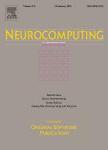版权所有:内蒙古大学图书馆 技术提供:维普资讯• 智图
内蒙古自治区呼和浩特市赛罕区大学西街235号 邮编: 010021

作者机构:Univ Teknol Malaysia Fac Comp Soft Comp Res Grp Skudai 81310 Johor Malaysia Univ Teknol Malaysia Fac Mech Engn Dept Mfg & Ind Engn Skudai 81310 Johor Malaysia
出 版 物:《NEUROCOMPUTING》 (神经计算)
年 卷 期:2015年第166卷
页 面:357-366页
核心收录:
学科分类:08[工学] 0812[工学-计算机科学与技术(可授工学、理学学位)]
主 题:Adaptive network-based fuzzy inference systems (ANFIS) Modified genetic algorithm (MGA) Training algorithm Population Prediction model Prediction accuracy Improvement rate
摘 要:Adaptive Network-based Fuzzy Inference Systems (ANFIS) is one of the most well-known predictions modeling technique utilized to find the superlative relationship between input and output parameters in different processes. Training the adaptive modeling parameters in ANFIS is still a challengeable problem which has been recently considered by researchers. Hybridizing of a robust optimization algorithm with ANFIS as its training algorithm provides a scope to improve the effectiveness of membership functions and fuzzy rules in the model. In this paper, a new Modified Genetic Algorithm (MGA) by using a new type of population is proposed to optimize the modeling parameters for membership functions and fuzzy rules in ANFIS. As well, a case study on a machining process is considered to illustrate the robustness of the proposed training technique in prediction of machining performances. The prediction results have demonstrated the superiority of the presented hybrid ANFIS-MGA in term of prediction accuracy (with 97.74%) over the other techniques such as hybridization of ANFIS with Genetic Algorithm (GA), Taguchi-GA, Hybrid Learning algorithm (HL), Leave-One-Out Cross-Validation (LOO-CV), Particle Swarm Optimization (PSO) and Grid Partition method (GP), as well as RBFN and basic Grid Partition Method (GPM). In addition, an attempt is done to specify the effectiveness of different improvement rates on the prediction result and measuring the number of function evaluations required. The comparison result reveals that MGA with improvement rate 0.8 raises the convergence speed and accuracy of the prediction results compared to GA. (C) 2015 Elsevier B.V. All rights reserved.